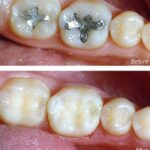At AskDoctor.ai, we have created this content to provide you with valuable knowledge about the connection between autoimmune support and the supplements that can help to manage symptoms.You are not alone; through knowledge and community, we believe you can confidently navigate this journey.
Autoimmune diseases are complex conditions where the body’s immune system mistakenly attacks healthy cells, leading to chronic inflammation and tissue damage. With over 80 types of autoimmune diseases identified, these conditions can affect almost every part of the body. From rheumatoid arthritis to lupus and multiple sclerosis, autoimmune diseases can significantly impact a person’s quality of life.
While medication is often the first line of treatment for autoimmune diseases, many individuals seek additional support through supplements to help manage their symptoms, improve their immune function, and support overall well-being. But with a vast array of supplements on the market, it can be overwhelming to know which ones are most effective.
In this blog, we will dive deep into the best supplements for autoimmune support, backed by science, to help you make informed decisions.
What are Autoimmune Diseases?
Autoimmune diseases occur when the immune system, which is designed to protect the body from harmful invaders like bacteria and viruses, turns against its own cells. This leads to inflammation, pain, and damage in the affected organs and tissues. Some common autoimmune diseases include:
- Rheumatoid Arthritis (RA): An inflammatory condition affecting the joints.
- Multiple Sclerosis (MS): A disease that affects the brain and spinal cord, disrupting communication between the brain and the body.
- Lupus: A chronic disease that can damage the skin, joints, kidneys, and other organs.
- Celiac Disease: It is an autoimmune disorder in which the ingestion of gluten leads to damage in the small intestine.
- Type 1 Diabetes: A condition where the immune system attacks insulin-producing cells in the pancreas.
While autoimmune diseases can be challenging to manage, incorporating the right supplements can provide supportive care to reduce symptoms, boost immunity, and improve overall health. Let’s explore the best supplements for autoimmune support.
Best Supplements For Autoimmune Support
Vitamin D is one of the most widely recommended supplements for people with autoimmune diseases. The reason? There is strong evidence suggesting that vitamin D plays a crucial role in modulating the immune system.
How Does Vitamin D Help with Autoimmune Support?
- Regulation of Immune Function: Vitamin D has been shown to enhance the function of immune cells and reduce the production of inflammatory cytokines, which are chemicals that contribute to inflammation in autoimmune conditions.
- Reduced Risk of Autoimmune Diseases: Studies suggest that individuals with low levels of vitamin D may have a higher risk of developing autoimmune diseases. For instance, people with lower levels of vitamin D are more likely to develop multiple sclerosis (MS), type 1 diabetes, and rheumatoid arthritis.
- Support for Bone Health: Since autoimmune diseases often involve chronic inflammation, they can lead to bone loss. Vitamin D plays a key role in calcium absorption and bone health, helping to prevent osteopenia or osteoporosis in autoimmune patients. For instance, a study suggests that individuals with RA who had insufficient vitamin D levels had a 40% higher risk of low BMD compared to those with adequate vitamin D levels.
Recommended Dosage:
The ideal dosage of vitamin D depends on factors such as age, body weight, and existing vitamin D levels. A general guideline is 1,000 to 2,000 IU daily, but higher doses may be necessary for those with a deficiency. Always consult a healthcare provider for personalized recommendations.
- Omega-3 Fatty Acids
Omega-3 fatty acids, particularly EPA and DHA, are essential fats found in fatty fish like salmon, mackerel, and sardines. These fats are also available in supplement form, often as fish oil or algae oil.
How Do Omega-3 Fatty Acids Help with Autoimmune Support?
- Anti-Inflammatory Properties: Omega-3s are known for their ability to reduce inflammation, which is a key issue in autoimmune diseases. Research shows that omega-3 supplementation can help reduce the severity of symptoms in conditions like rheumatoid arthritis and lupus.
- Improved Joint Health: Studies have found that omega-3s may help reduce joint pain and stiffness in people with rheumatoid arthritis (RA). One study showed that RA patients who took omega-3 supplements reported less pain and better mobility. A striking study shows that RA patients who took 3.6 grams of omega-3s daily experienced a 40% improvement in joint tenderness and 50% improvement in the number of swollen joints. This improvement was accompanied by a reduction in the use of painkillers and other anti-inflammatory medications.
- Supporting Brain Health: Omega-3s are critical for brain health and function, and they may help manage neuroinflammation associated with autoimmune diseases like multiple sclerosis (MS). For instance, it is shown that omega-3 supplementation improved cognitive performance by 17% in MS patients, particularly in areas of memory and attention.
Recommended Dosage:
A typical dose for omega-3s is 1,000 to 3,000 mg per day, though higher doses may be necessary for those with significant inflammation. Look for supplements with a high ratio of EPA to DHA for the most effective anti-inflammatory benefits.
- Turmeric (Curcumin)
Curcumin, the active compound in turmeric, has been widely studied for its anti-inflammatory and antioxidant properties. It has become one of the most popular supplements for those with autoimmune conditions due to its potential to reduce inflammation and support overall health.
How Does Turmeric (Curcumin) Help with Autoimmune Support?
- Potent Anti-Inflammatory: Curcumin has powerful anti-inflammatory properties that help reduce the chronic inflammation seen in autoimmune diseases. Studies have shown that curcumin can help reduce symptoms in conditions like rheumatoid arthritis, inflammatory bowel disease (IBD), and psoriasis.
- Supporting Gut Health: Since many autoimmune diseases are linked to gut dysfunction or leaky gut syndrome, curcumin’s ability to support gut health can be highly beneficial.
- Antioxidant Benefits: Curcumin is also a strong antioxidant, meaning it helps neutralize harmful free radicals in the body that may contribute to inflammation and autoimmune disease progression.
Recommended Dosage:
The typical dose of curcumin is 500 to 1,000 mg per day, although it’s important to take it with black pepper (which contains piperine) to enhance absorption. Many supplements combine turmeric with piperine for maximum effect.
- Probiotics
Gut health plays a crucial role in the development and management of autoimmune diseases. Probiotics are beneficial bacteria that help maintain a healthy balance of gut flora, which is vital for proper immune system function.
How Probiotics Help with Autoimmune Support:
- Gut-Immune System Connection: Research has shown that the gut microbiota is deeply connected to the immune system. An imbalance in gut bacteria, also known as dysbiosis, can trigger or exacerbate autoimmune conditions. Probiotics help restore balance to the gut, supporting immune function and reducing inflammation.
- Reducing Inflammation: Probiotics have been shown to reduce inflammation, particularly in the gut, which can alleviate symptoms of autoimmune diseases like IBD, rheumatoid arthritis, and psoriasis. A study shows that probiotics reduced systemic inflammation, with a 17-30% reduction in CRP and 15-25% reduction in IL-6 in autoimmune disease patients.
- Enhancing the Gut Barrier: Probiotics strengthen the gut barrier, which may help prevent the immune system from mistakenly attacking the body’s tissues.
Recommended Dosage:
A typical probiotic supplement contains 1 to 10 billion CFUs (colony-forming units) per dose. Aim to choose a product with multiple strains of beneficial bacteria, such as Lactobacillus and Bifidobacterium, for the most comprehensive support.
- Vitamin B12
Vitamin B12 is a water-soluble vitamin that plays a key role in nerve function, red blood cell production, and DNA synthesis. Many people with autoimmune diseases, especially those with conditions like multiple sclerosis or pernicious anemia, are often found to have low levels of vitamin B12.
How Does Vitamin B12 Help with Autoimmune Support?
- Nerve Health: B12 is crucial for nerve function, and many autoimmune diseases, including MS and lupus, can cause nerve damage. Supplementing with B12 can help support nerve repair and function. For instance, a study reveals that B12 supplementation can lead to a 22% improvement in NCV, suggesting that B12 can help restore nerve conduction, which is often impaired in MS due to demyelination of nerve fibers.
- Energy Levels: Autoimmune diseases can often lead to chronic fatigue. Vitamin B12 plays a role in energy production, helping to reduce fatigue and improve overall vitality.
- Immune Support: Vitamin B12 is essential for optimal immune system function. It helps produce and maintain healthy blood cells, which are vital for fighting infections and maintaining overall health.
Recommended Dosage:
The recommended daily intake of vitamin B12 is about 2.4 mcg, but higher doses are often recommended for those with deficiencies. It’s available in many forms, including sublingual tablets, injections, or oral supplements.
- Zinc
Zinc is a crucial mineral for immune system health. It plays a role in over 300 enzyme processes in the body, including those involved in immune function. Zinc is particularly important for people with autoimmune diseases as it can help regulate the immune response.
How Does Zinc Help with Autoimmune Support?
- Immune Modulation: Zinc has immune-modulating properties, meaning it can help balance immune responses, which is particularly beneficial for those with autoimmune conditions where the immune system is overactive.
- Wound Healing: Zinc plays a vital role in wound healing and tissue repair, both of which can be crucial for individuals with autoimmune diseases that cause skin damage, such as lupus or psoriasis.
- Antioxidant Properties: Like curcumin, zinc also has antioxidant properties that can reduce oxidative stress, which is often elevated in autoimmune diseases.
Recommended Dosage:
The recommended daily allowance (RDA) for zinc is 8–11 mg for adults. Zinc supplements should generally be taken with food to prevent stomach upset, and it’s often best to avoid high doses for extended periods, as excess zinc can interfere with copper absorption.
- Ashwagandha
Ashwagandha is an adaptogenic herb known for its ability to help the body manage stress. Chronic stress can exacerbate autoimmune conditions, so ashwagandha may be beneficial for people with autoimmune diseases that are triggered or worsened by stress.
How Does Ashwagandha Help with Autoimmune Support?
- Stress Reduction: As an adaptogen, ashwagandha helps the body adapt to stress and balance cortisol levels. Since stress can worsen autoimmune symptoms, ashwagandha can help manage these triggers. An interesting study published in the Indian Journal of Psychological Medicine examined the effects of ashwagandha on stress and anxiety in individuals with chronic stress. The study involved 64 participants who took 300 mg of ashwagandha root extract twice daily for 60 days. The results showed a 28% reduction in cortisol levels and a significant 44% reduction in stress as measured by the Perceived Stress Scale (PSS)
- Anti-Inflammatory: Ashwagandha has been shown to reduce inflammation, which is particularly beneficial for autoimmune conditions that involve chronic inflammation.
Vitamin D Supplements For IBD
A Reddit User says that supraphysiological doses of vitamin D completely eliminated their inflammatory bowel disease (IBD). When their condition was at its worst, taking 100,000 IU of vitamin D per day for a week resulted in a complete cessation of symptoms. Additionally, they also opted for the adequate intake of vitamin K2 and other vitamin D cofactors, such as magnesium, to support the effectiveness of this treatment.
Complete Dietary Change
Reddit User Kmlew discovered they were highly sensitive to dairy and gluten, which also led them to identify issues with preservatives, gut health, and metal toxicity or sensitivities. They adjusted their diet accordingly, and after a couple of months, they began feeling better. Their daily supplements include NAC, glutathione, vitamin D with fish oil, and iodine drops. They also recommend getting regular blood work, as they found they had very low vitamin D, ferritin, and T4 (thyroid) levels, which led to the addition of iodine and selenium to their regimen for support.
Alexa’s Triumph Over Autoimmune Diseases
You can also check out this video by YouTuber Alexa Rose, wherein she shares her journey with autoimmune diseases.
Recommended Dosage:
A typical dosage is 300-500 mg per day, usually in extract form. Look for supplements standardized to contain 5% withanolides, the active compound in ashwagandha.
Your Next Steps Toward Managing Autoimmune Symptoms
While supplements can provide valuable support for individuals with autoimmune diseases, it’s essential to remember that they should be used as part of an overall treatment plan, which may include medications, lifestyle changes, and diet modifications. Always consult with a healthcare provider before adding any new supplements to your regimen, as some can interact with medications or exacerbate certain conditions.
By incorporating these scientifically backed supplements into your routine, you can support your immune system, reduce inflammation, and improve your overall quality of life when living with an autoimmune disease.









Leave a Reply